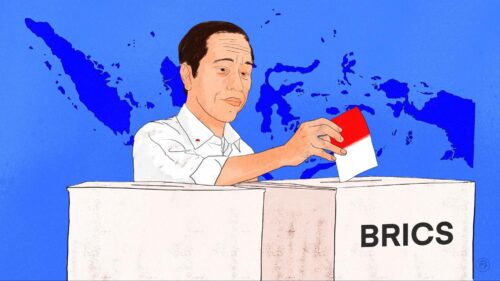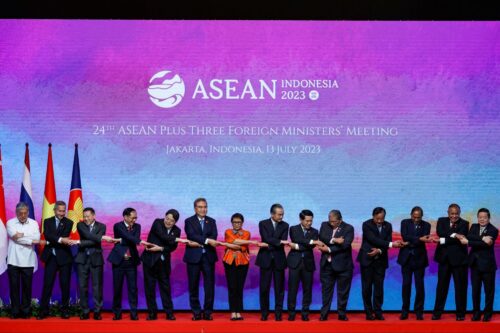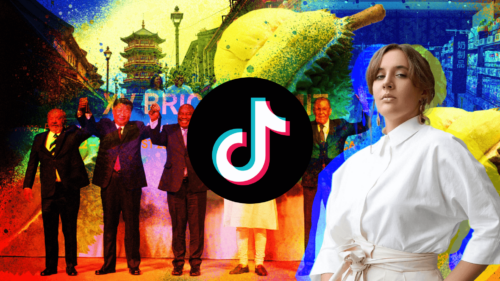Xi and Widodo meet after G20 and agree to strengthen the China-Indonesia ‘strategic partnership’
As Joe Biden flew out of Bali, Xi Jinping stayed on for a warm meeting with Indonesian president Joko Widodo to solidify one of the most important bilateral relationships in the world.

The G20 Summit in Bali, Indonesia, ended yesterday, November 16, but Chinese leader Xí Jìnpíng 习近平 stayed on for an evening meeting with Indonesian President Joko Widodo.
The two watched a demonstration of the new high-speed railway from Jakarta to Bandung through video link, and then held talks. The two sides released a joint statement and a series of cooperation documents, which include plans and promises to:
- Strengthen the “Comprehensive Strategic Partnership” between China and Indonesia.
- Deepen “the synergy” of the Belt and Road Initiative (BRI) and Indonesia’s Global Maritime Fulcrum (GMF).
- Promote “the whole industry-chain vaccine cooperation as well as drug research and development,” and a commitment for China to “support Indonesia in its effort to build a regional vaccine hub.”
- Work together on digital economy, education, poverty alleviation, agriculture, medicinal plants, media, infrastructure financing, and the import into China of Indonesian bananas.
The importance of Indonesia to China was underscored by front-page coverage on the People’s Daily, the house newspaper of the Communist Party.
- The People’s Daily noted China’s support for Widodo’s controversial plan to move his nation’s capital from Jakarta to Nusantara on the island of Borneo.
- The support is financial and material: China is building a high-speed rail link linking major cities in Indonesia, much to the frustration of Japan, which had expected to get the contract.
Widodo appears to have signed up to much of China’s political agenda, including the usual expectations from Beijing for “non-interference” in the “internal affairs” other countries.
- This means that official criticism about human rights abuses against Uyghurs is highly unlikely, even though Indonesia is the world’s most populous Muslim-mmajority state.
Nonetheless, Widodo has deftly balanced his country’s relationships with the U.S. and China. His diplomacy brought world leaders together in Bali at a time of global geopolitical tensions, and after more than two years when COVID restrictions prevented most few face-to-face meetings.
“The president is sending a strong message to both the U.S. and China that balanced relations, based on mutual interest, benefit all countries,” said Dr Yose Rizal Damuri, head of the Department of Economics at the Indonesian Branch of the Center for Strategic and International Studies (CSIS), a leading think tank on international affairs, in an interview with The China Project.
- Earlier this month, Widodo told the Financial Times his country refuses “to be a pawn in a new cold war.”
Most ASEAN countries feel uncomfortable when pressed to pick a side between the U.S. and China, according to Damuri, who said that there are skeptical questions in Asia about why the U.S. wishes to play a greater role in the region’s affairs:
The way people see the U.S. is quite different to the way they see China. Yes, we do have challenges with China but it still offers concrete benefits to countries in this region in terms of trade and investment. That’s why I think people are still taking a “wait-and-see position” in terms of the Biden administration’s strategy for Southeast Asia.
With Indonesia’s economy set to grow at well above five percent this year — likely the fastest of any G20 nation, the country’s relationships with China and the U.S. are of global significance. As The Economist, a newspaper, put it: “Indonesia is back on the map…With 276 million people spread across thousands of islands that stretch from the Indian Ocean to the Pacific, it is caught up in the strategic contest between America and China.”







